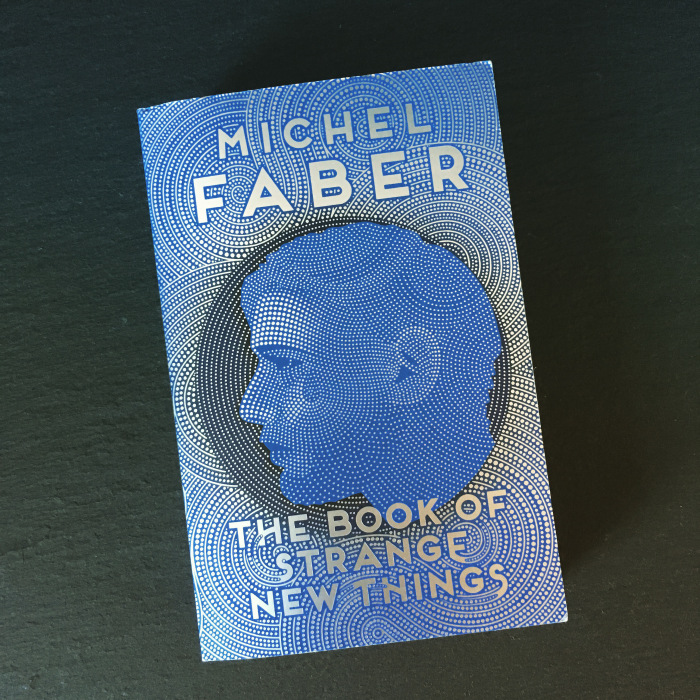To make up for the dearth of blog posts this year, I’m returning to my twelve days of Christmas book recommendations: a daily blog throughout the rest of December in which I share with you the twelve best books I read during 2017, counting down to the best of them all on Christmas Eve.
As always, these aren’t all books published this year but they are all books that I would heartily recommend you go out and buy or borrow. (That was a sneaky prompt to use your local library.)
Let’s see what my tenth favourite book was in 2017…
The Book of Strange New Things by Michel Faber

Like yesterday’s book, Michel Faber’s The Book of Strange New Things is set in the not too distant future, in a society that looks and feels like ours but for one thing: a global corporation has all but colonised another planet in a neighbouring galaxy.
Christian pastor, Peter, unexpectedly secures the job of missionary to this planet, known as Oasis by the corporation. The novel follows Peter’s departure from his beloved wife, Bea; his journey to and arrival on Oasis; and his contact with the planet’s inhabitants, the already devoutly ‘Christian’ Oasans. It is a novel about religion and faith; language and communication; and, most movingly for me, separation and grief.
While on the alien planet, Peter is able to communicate only briefly, sporadically and electronically with Bea and their separation across such an insurmountable distance becomes a kind of hum that vibrates through the novel. From Bea’s messages, received through a machine called a ‘Shoot’, we learn that back on Earth, things are falling apart. The economy is collapsing and natural disasters are sweeping across continents. Her distress is evident from her messages, but Peter’s disorientation and distance makes it impossible for him to recognise it or provide the comfort and support his wife needs.
Faber’s novels are fairly immersive affairs – it is hard not to be drawn in by them – and I found this was especially true of The Book of Strange New Things. Peter’s extreme isolation, his own alienation, is so convincingly realised that I felt it quite profoundly. The use of the Oasans’ alien script at first reinforces this isolation but Faber deploys it skilfully so that, as Peter’s understanding of their language improves, so does the reader’s. Only then do we realise that, increasingly, Peter’s isolation is from his fellow humans and not just those back on Earth.
Two days ago, I recommended a crime novel that should be read even by those who don’t think they like genre fiction and the same goes for this sci-fi novel. You will be rewarded handsomely.
Advertisements Like this:Like Loading...




